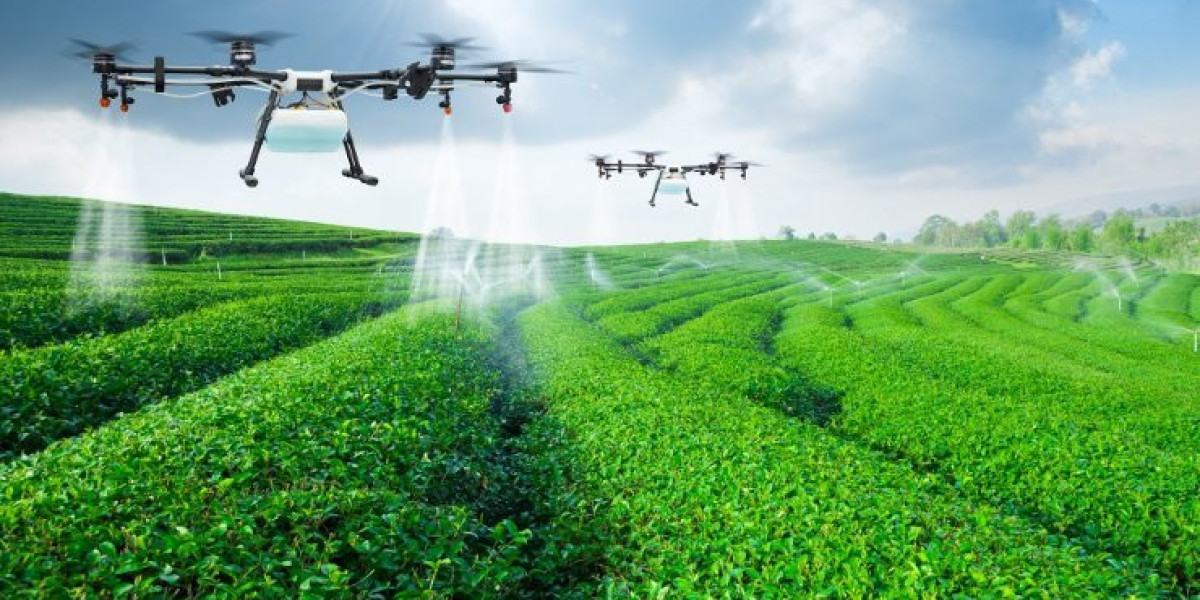The global agriculture industry, one of humanity's oldest and most essential sectors, is in the midst of a profound digital revolution, moving from traditional farming practices to a more precise, data-driven, and sustainable model. This transformation is being powered by a diverse and rapidly evolving ecosystem of Digital Agriculture Market Companies. This landscape is a complex interplay of several key categories: the major, established agricultural machinery and input giants, specialized AgTech software and hardware providers, and a new wave of innovative startups focused on areas like remote sensing and AI. These firms provide the critical technologies—from farm management software and precision GPS guidance to drone-based imagery and soil sensors—that enable farmers to increase yields, reduce input costs, and improve the environmental sustainability of their operations. The Digital Agriculture Market size is projected to grow USD 16.55 Billion by 2035, exhibiting a CAGR of 5.14% during the forecast period 2025-2035. This substantial growth reflects the immense global pressure to feed a growing population with finite resources, making digital agriculture a critical tool for ensuring future food security.
The top tier of the market is dominated by the major, vertically integrated agricultural science and equipment conglomerates. Companies like Bayer (following its acquisition of Monsanto and its Climate FieldView platform), Corteva Agriscience, and Syngenta are major players, leveraging their deep relationships with farmers and their expertise in seeds and crop protection to offer digital farming platforms. The Climate FieldView platform is a prime example, a comprehensive system that collects and analyzes data from a farmer's equipment to provide insights on everything from planting and fertilization to yield analysis. In parallel, the major agricultural machinery manufacturers, such as John Deere and CNH Industrial, are also dominant forces. John Deere has built a powerful digital ecosystem around its MyJohnDeere Operations Center. Their strategy is to embed advanced technology—including GPS auto-steer, variable rate application controllers, and telematics—directly into their tractors, combines, and sprayers, and then to provide a software platform that allows the farmer to manage their entire fleet and analyze the vast amounts of data being generated by the machines. Their competitive advantage is their control over the hardware and their massive, loyal dealer network.
In contrast to these established giants, a second, highly innovative, and fast-growing category consists of a vast ecosystem of specialized, independent AgTech companies. This includes firms that specialize in a specific technology or data source. For example, there are companies that focus exclusively on providing high-resolution satellite imagery and data analytics for crop monitoring. Others specialize in building robust, on-farm weather stations and predictive weather modeling. A major segment is focused on the hardware and software for precision irrigation, using soil moisture sensors and other data to apply water more efficiently. Another key group is the independent Farm Management Software (FMS) providers, who offer a more vendor-neutral platform for managing farm operations, competing with the platforms offered by the major equipment and input giants. This diverse and dynamic ecosystem of specialized AgTech players is a primary engine of innovation in the market, often developing cutting-edge solutions that are later acquired by or partnered with the larger, established players. The interplay between the vertically integrated giants and these nimble specialists defines the complex and evolving structure of the digital agriculture market.
Top Trending Reports -
South America AI Studio Market








